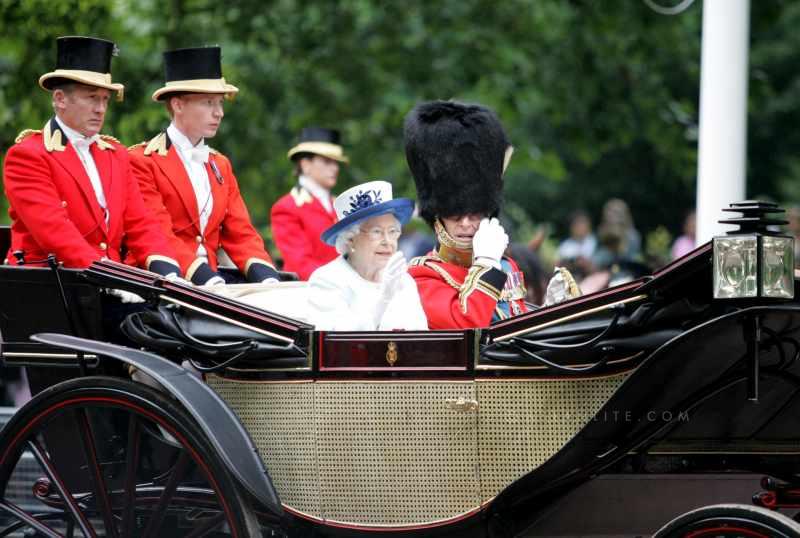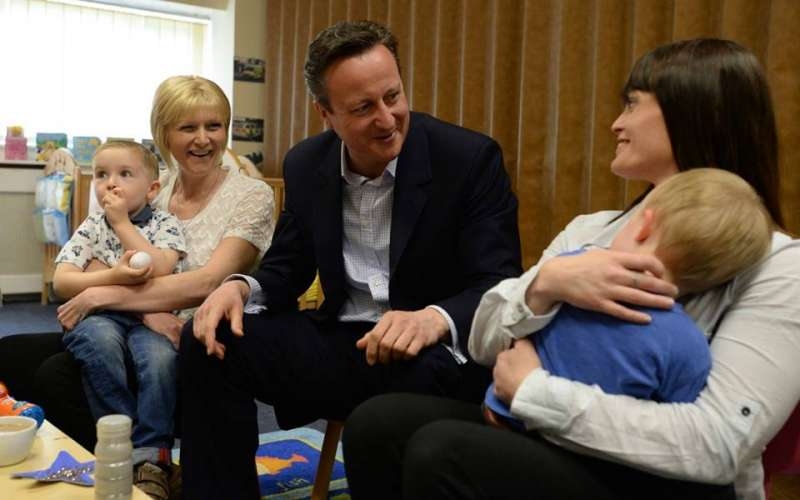Prime Minister David Cameron will set the agenda for his second term with a series of policy announcements in the Queen’s Speech on Wednesday. The prime minister, who is enjoying a thin majority and without any hassle from the strings of a coalition, will unveil a timeframe to fulfil most of his promises in the election manifesto. But some back benchers along with the opposition can undermine some of the proposals.

The following are the key policies likely to be included in the speech:
EU Referendum Bill
Cameron has promised to renegotiate Britain’s terms of membership of the European Union and put it to a public vote by 2017 at the latest.
Human Rights Act Repeal Bill
The Human Rights Act has provoked much controversy and the Conservatives have pledged to abolish the Human Rights Act and replace it with a British Bill of Rights. The Conservative manifesto says: “This will break the formal link between British courts and the European Court of Human Rights, and make our own Supreme Court the ultimate arbiter of human rights matters in the UK.”
NHS Bill
Cameron used his first major post-election speech to focus on his plans for the health service in England. He has pledged to boost funding by at least £8bn extra a year by 2020 and to create “a truly seven-day NHS”. The government is also promising to recruit 5,000 new GPs.
Income Tax Bill
During the general election campaign, Cameron vowed to introduce a law guaranteeing no rise in income tax rates, VAT or national insurance before 2020. The PM has also pledged a law to ensure that “no one working 30 hours on the minimum wage pays any income tax at all”.
Immigration Bill
The government is promising a crackdown on illegal immigration, and has already set out a number of new offences to try to “control and reduce” migration to the UK. These include a specific offence of illegal working – with police given the power to seize the wages paid to illegal workers as the “proceeds of crime”.
Policing Bill
Home Secretary Theresa May has pledged to ban the use of police cells for the emergency detention of mentally ill people under the Mental Health Act.
City Devolution Bill
Chancellor George Osborne said as much in first post-election speech, in which he outlined his vision to give English cities powers over housing, transport, planning and policing. He said Greater Manchester – which will take on the powers when electing a mayor in two years – should become a blueprint for other large cities.
Strike laws reform
Business Secretary Sajid Javid has said it will be a government priority to reform strike laws. Specifically, it is proposing to ban strike action from taking place unless 40% of all eligible union members vote in favour of industrial action. The government also wants to lift a ban on use of agency staff when strike action takes places.
Employment Bill
The Conservatives have said measures on work will be at the heart of their legislative programme, with David Cameron saying during the election campaign that the UK should aspire to “full employment”. He has pledged legislation on “day one” of the new Parliament. Among the priorities will be a push to create two million more jobs and three million more apprenticeships over the course of the Parliament. The boost in apprenticeships is to be paid for by reducing the benefit cap from £26,000 to £23,000.
Schools Bill
The prime minister has pledged to bring in a bill to “deliver better schools – with more radical measures to ensure young people leave education with the skills they need”. He said the legislation will “include new powers to force coasting schools, as well as failing schools, to accept new leadership, continuing the remarkable success story of Britain’s academy schools”.

Childcare Bill
Another stated key priority of the Conservative government is childcare. Currently, all three and four-year olds in England are entitled to 570 hours of free early education or childcare a year, which works out as 15 hours each week for 38 weeks of the year. During the election campaign, the Conservatives promised 30 hours from 2017.
Enterprise Bill
The government has outlined plans for a bill to cut red tape for British business by at least £10bn and, for the first time, independent regulators will be expected to contribute to that target. The bill is also expected to propose a new Small Business Conciliation Service, to help settle disputes between small and large businesses, especially over late payment practices.
Scotland Bill
The prime minister has pledged to include a bill on devolution which would be based on the cross-party Smith Commission agreement on Scottish devolution. The Smith proposals included giving Holyrood the power to set income tax rates and bands, as well as control over a share of VAT and some welfare benefits.
Counter-extremism Bill
The government is expected to bring forward a new bill to crack down on radicalisation. It will include new immigration rules, powers to close down premises used by extremists, and “extremism disruption orders”. Mr Cameron has repeatedly stressed the need to confront and defeat the “poisonous” extremist ideology.
Communications and Data Bill
Conservatives will introduce a bill to allow communication companies to store data for 12 months. It would allow, for the first time, details of messages sent on social media, webmail, voice calls over the internet and gaming, in addition to emails and phone calls. Currently communications firms only retain data about who people send emails to, and who they ring.
Housing Bill
One of the Conservatives’ key pledges during campaign was an extension of the Right to Buy scheme to 1.3 million housing association tenants in England. Right to buy was a flagship policy of Margaret Thatcher’s government in the 1980s, for tenants of housing associations – private, not-for-profit bodies that provide low-cost housing. Under current rules, about 800,000 housing association tenants have a “right to acquire” their homes under smaller discounts.